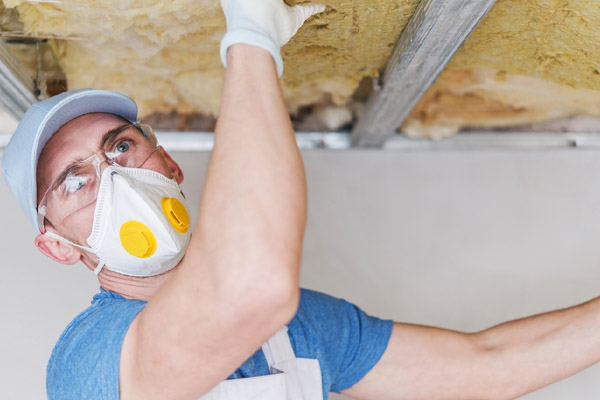The amount of Link Juice passed to a page depends on a number of factors. The more links a page has, the less link juice it will have.
The quality of the links passing link juice is also important. Search engines give greater weight to endorsements from high-quality sources.
High-quality backlinks are a key component of any SEO strategy. These links improve Page Juice, which leads to better rankings and increased traffic. However, there are a few important things to keep in mind when choosing the right backlinks for your site. First, you should always look for high-quality content. This includes keyword research, originality, and well-formatted posts. Additionally, you should focus on niche and audience segmentation to ensure that your posts reach the people who are most interested in them.
One of the best ways to boost your link juice is to use guest-posting strategies. This is a great way to generate incoming links from authoritative websites and reach new audiences. However, it is important to be cautious about overdoing this technique because too many low-quality links can harm your page juice.
Another factor that determines the quality of a link is its relevance to the destination page. This is determined by the website’s authority and industry relevance. There are several tools that measure a website’s authority, including Moz DA, Ahrefs Domain Rating, and Majestic Trust Flow. Generally speaking, websites with higher DA scores and more industry relevance pass more link juice.
In addition, the anchor text of a link plays a significant role in its quality. A branded link with a relevant keyword can significantly increase the link juice of a page. It is also important to choose a high-quality domain and ensure that your content is well-formatted.
Finally, the number of links on a source page also affects its juice. For example, a blog post that has more than 10 links will pass less Page Juice to each of them. However, if a blogger uses the same keywords as those on his or her own page, it will be much easier to pass Page Juice.
Lastly, a link must be dofollow in order to pass Link Juice. Although making all your links dofollow may seem tempting, it’s not a good idea because search engines may punish your site for using black-hat link-building techniques. In addition, too many dofollow links can signal that you’re trying to manipulate Page Juice, which can have a negative impact on your SEO.
Anchor text
A link’s anchor text is a critical part of its value. It tells the search engine what topic the linked page is about and how it is related to the source. It also determines whether the linked page will rank well in the SERPs. This is why it’s important to use a variety of anchor texts when building links. This will help ensure that your pages receive a wide range of traffic.
A good anchor text should be short, descriptive, and include the desired keyword. It should also be relevant to the linked page’s content. Using exact-match anchor text can be risky, as Google may view it as spam and punish the site. Instead, try to use a variation of the keyword, such as “learn more” or “click here.” Alternatively, you can use LSI keywords, which are similar variations of your main keyword.
Using the right internal linking strategy can improve your link juice and increase your website’s PageRank. You can do this by using a clear site hierarchy and internal links to connect related pages on your site. This will help readers navigate your site and show the search engines how each page relates to other pages on your website.
Another way to boost link juice is to create unique, useful content that people want to share. This will encourage other websites to link to your content. You can also expand existing content to make it more comprehensive and useful. This is called the “skyscraper technique” and can boost your SEO rankings.
When creating your anchor text, avoid using generic phrases such as “click here” or “learn more.” These are ambiguous and don’t provide any context for the reader. They are also spammy, which can hurt your ranking. Instead, focus on creating natural anchor texts that describe the linked page’s topic.
The more outgoing links a page has, the less link juice it passes on. In addition, the number of outgoing links can influence how much link equity is passed through each individual link. This is why it’s essential to use internal links and a clear site structure to distribute link juice across your domain.
Relevance
Link juice is the amount of authority a page receives from the links on it. The more relevant these are to the topic of the page, the higher its ranking will be in search engine results pages (SERPs). There are three ways to send Link Juice to a specific page: building external links, internal linking, and using redirects. Regardless of which strategy is used, it is essential that the link power be optimally distributed to the page.
The key to improving link juice is to create and use high-quality inbound links from authoritative pages and domains. In addition, the keyword relevance of the links is an important factor. It is also a good idea to limit the number of outgoing links on each page. Too many outgoing links may look spammy to search engines. Finally, it is important to use synonyms or latent semantic keywords when creating links.
It is also important to avoid overusing internal links. Too much of this could lead to a Google penalty, which can negatively affect your site’s ranking. It is also important to have a well-structured website that is thematically oriented and contains plenty of information. This can help you rank in the right places for your target audience.
Another way to improve link juice is by using 301 redirects. However, it is important to note that not all redirects pass PageRank. It is recommended to use 301 redirects only for pages that have real value and are worth ranking on their own. For example, an address, contact, or login page does not need to be ranked on its own, so it should not receive any PageRank.
Another way to improve Link Juice is to focus on linking pages within your own domain. This will give your site a better chance of ranking in the coveted first position on a search engine results page. In addition, this will help you build a stronger link network and increase your domain authority. In order to do this, you should choose the right anchor text and ensure that all of your internal links are relevant.
Authority
The authority of a webpage is one of the most important factors in link juice. This can be measured using SEO tools such as Ahrefs or Moz. A page with a high domain authority is likely to pass on more link equity than a site with a lower one. However, it’s important to remember that the amount of PR passed on isn’t static and can be affected by several factors.
For example, a link from a domain with a high PageRank is more valuable than a link from a page with a lower PageRank. The number of links on a page also affects how much PR is transferred. It’s important to limit the number of links on a page so that only quality pages receive a portion of the PR.
Another way to improve Link Juice is through guest blogging and link exchanges. These activities allow you to connect with other sites and bring in new audiences. This can increase your site’s PageRank and improve your chances of ranking well for certain keywords.
Using the right anchor text is also important for improving Link Juice. Ideally, your anchor text should contain keywords that match those of the keyword you’re targeting. It’s also a good idea to include your target keyword in the alt attribute of images and videos, as this can help Google understand what the content is about.
Finally, the position of the link in the text also affects how much link juice is passed on. A link in the body of the text will pass more link juice than a link in the sidebar or footer. This is because search engines see this as a sign that the content is relevant to the user’s query.
Many marketers overlook the potential of internal links as a way to boost link juice. The fact is that your website probably has reservoirs of link juice that are just waiting to be tapped. To maximize this, try to find LSI keywords and related pages that are in the same niche as the content of your page. Then, link to those pages to distribute Link Juice throughout your site.


